By Val Thorpe, GSWA Director of Communications & Membership
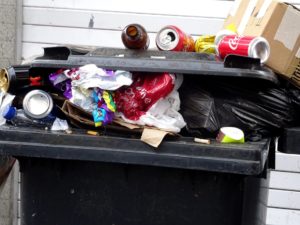

I opted to tackle just a couple issues so, I offered to take her vast collection of plastic shopping bags to the plastic bag collection bin at her local grocery store. She was unaware such a thing existed. As I gathered them up, I told her they would be reprocessed into new bags and plastic lumber. She was happy to hear that. Whew, one down!
After lunch I plucked a stack of greasy pizza boxes from the recycle bin, explaining that soiled cardboard cannot be recycled. Recycling facilities often must reject tons of recyclable paper because it’s contaminated by other items covered in food and grease. It’s the ‘one bad apple’ theory. “But,” I excitedly noted, “you can tear the greasy portion off and toss it in the trash and recycle the rest!” My exuberance was met with half-hearted head nods. Okay, that’s enough for one day.
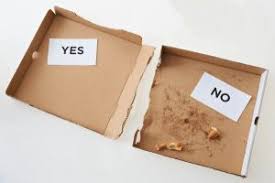

A few days later I made a bolder move. I crafted an email to my immediate family providing some general single-use plastics facts and recycling tips. Then some quick internet searches provided trash and recycling regulations on each of their towns. I included the link and gave a brief summary: 1) plastic recycling numbers accepted (the number inside the little triangle on the bottom of the container), 2) items allowed in their recycle bin, and 3) items not permitted.
Below is the letter I sent to my family. Some sent back words of appreciation and a desire to share this info. Others haven’t responded yet, but people get busy. (Let’s go with that.) I’m not looking for “likes” but rather to inspire change which we so desperately need. Who knows? Maybe you now feel compelled to send something to your family and/or friends. Knowledge is power, and there’s no limit to sharing it.
Hello amazing family,
As campers, hikers, runners, picnickers, fisher wo/men, nature-themed crafters and so much more, we are obviously a family who loves and appreciates the great outdoors. I feel fortunate to work in a place that is overflowing with information on how to take care of our world together. It can be a little confusing so, I thought I’d share some basic things-to-know about single-use plastic and recycling rules in your towns. It’s not hard to imagine that as humans, we have done some damage to our planet. And we have our little ones’ futures to think about. I hope you will read on…
A quick overview on single-use plastic
Once plastic is manufactured it never goes away. It doesn’t break down, it breaks up into smaller and smaller pieces (aka microplastics) and ends up in our streams, rivers, oceans and wildlife. (You’ve probably seen some heart-wrenching pictures of whales.) Microplastics are ingested by microorganisms that are eaten by fish and it works its way up the food chain back to us. But we don’t have to eat fish to get our share of microplastics. It’s a fact that most of us have plastic in our bodies. (says who?) It’s not yet known what this means health-wise, but what is known is these little bits of plastic act like little sponges picking up toxins as they travel through the ecosystem, and they accumulate in our bodies. All this can negatively impact our health in a number of ways down the road.
Scientists estimate that there will be more plastic than fish in the ocean by weight in 2050. [says who?] That’s only 30 years away. Next time you’re in the grocery store look around. There’s so much single-use plastic. So, why not do what we can to minimize our impact on this mounting environmental crisis?
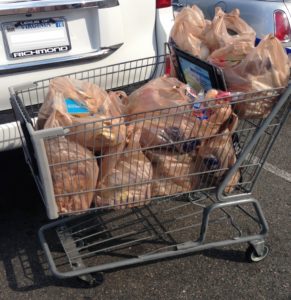

Plastic water bottles: Over 1 million are bought around the world every minute. [says who?] In the US, only about 23% are recycled and the rest end up in landfills and the ocean. The collection efforts and recycling facilities can’t keep up with the demand so approximately 38 million go into our landfills each year. Each bottle takes about 450 years to break down. [says who?] Meanwhile, chemicals in the plastic can leach into your water and when you crack open the lid, little bits of plastic fall in the bottle. I know all of you have at least 20 reusable water bottles in your cabinets. I’ve seen your kitchens! Read the water quality report that accompanies your water bill annually and/or test your tap water – if it’s clean, use it. If not, it’s important to fix that.
Plastic coffee pods: Coffee pod machines give us coffee in an instant, but they can’t be recycled because they’re considered too small to recycle so they end up in the landfill. It’s estimated that there were enough coffee pods buried in landfills in 2014 to go around the Earth 10.5 times. [says who?] Each of these pods takes 400 years to decompose. Good news: as an alternate, reusable pods can be filled with your favorite coffee (still plastic, but not single-use) and there are other single-serve systems on the market that do not use plastic pods.
Plastic Ziplock bags and plastic wrap: So convenient! So bad for the environment. You can find sets of reusable, resealable bags in varying sizes that are dishwasher safe. They don’t leach chemicals and they last a lot longer than a single-use baggie. Glass food storage bowls are another great alternative. Fairly new on the scene, you can purchase silicone lids that stretch over your bowls, etc. that work great.


Recycling Rules:
Rule #1 – When it doubt, throw it out – one person’s poor recycling habits can send an entire truckload of to the landfill.
Rule #2 – Rinse items before placing in the recycle bin.
Rule #3 – Remove all caps and lids from bottles and jars; most recycle facilities don’t take them.
Rule #4 – If there’s no recycle number, throw it out.
Rule #5 – Place recyclable items directly into your recycling receptacle, not in plastic bags.
I did some sniffing around on your local recycling websites and noted the highlights below, but I strongly encourage you to look it over yourself. Some recycle by town, some by township, others by counties. In other words, check my work! [Dear GSWA eNews reader: below is a template you could follow should you opt to send something like this to your family:]
Family member #1: [insert town/municipality trash-recycling link here] Accepts the following plastic recycling numbers [insert numbers here] Single-stream recycling: All these recyclables can be placed in the same container: [list items here] Prohibited: [list items here]
[Repeat for each family’s town – it’s much quicker to do than you might think!]
So, what do these recycling numbers represent? Generally speaking:
#1 (PET, Poly-EthyleneTerephthalate) include water, soda and salad dressing bottles, microwavable food trays, and peanut butter container
#2 (HDPE, High Density Polyethylene) include milk jugs, shampoo bottles, and butter and yogurt tubs
#3 (V, PVC Vinyl) which include cooking oil and mouthwash bottles, clear food packaging, and PVC piping
#4 (LDPE, Low Density Polyethylene) used in plastic shopping bags and trash bags
#5 (PP, Polypropylene) include ketchup and syrup bottles, and some yogurt containers
#6 (PS Polystyrene) used in disposable cups, plates, egg cartons, and clamshell take-out containers
#7 (Other) used in three-to-five-gallon water jugs and some food containers
If you’ve made it this far, you obviously love me. Even better, you’re interested. I’m betting you knew a lot of this information already. If so, please consider this a friendly reminder.
With love and thinking of the future of our kids, grandkids, great grandkids, and…
Val
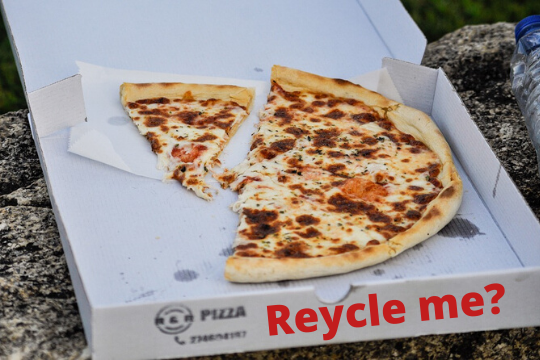
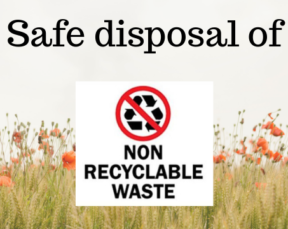

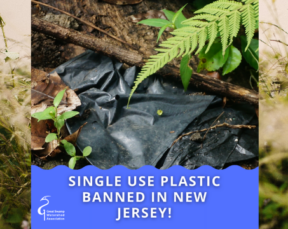
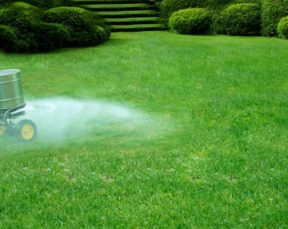
Where can I get rid of #6 yogurt containers? I have search for places near me on google but no luck. If anyone know it must be you!
Plastics coded #6 (PS Polystyrene) containers are not acceptable materials in the Morris County single-stream recycling program. Check with the yogurt manufacturer to see if they have set up their own recycling program. You could also encourage them to work with terracycle.com to set up a new program to recycle the unrecyclable!